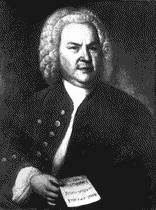
Johann Sebastian Bach (1685-1750)
Prolific German composer, one of the greatest figures in the history of music.
Biographies B
|
|
|
Sir
Francis Bacon (1561-1626) |
|
Leo
Baker (1898-1986) |
|
Mikhail
Bakhtin (1895-1975) |
|
James
M. Baldwin |
|
Alexander
Barfield |
| Arthur
Barfield xxxx |
| Elizabeth
Barfield xxxx |
| Harry
Barfield Owen Barfield's brother, a consultant on induction-heating and an expert on radio-wave propagation. |
| Jeffrey
Barfield xxxx |
| Lucy
Barfield xxxx |
| Maud
Douie Barfield Owen Barfield's wife (1923-1980). Before they married, she had been a dance researcher and teacher and a specialist in stage costumes, who had worked with Gordon Craig. |
|
Roland
Barthes (1915-80) |
|
Jacques
Barzun (1907- ) |
|
Walter
Jackson Bate (1918-1999 ) |
|
Gregory
Bateson (1904-1980) |
|
Beatrice |
|
Beaumont,
Sir Francis (1584-1616) & Fletcher, John (1579-1623) |
|
Ernest
Becker (1925-74) |
|
Samuel
Beckett (1906-1989) |
|
Jeremy
Bentham (1748-1832) |
|
Nicholai
Berdyaev (1874-1948) |
|
Thomas
Berger (1924- ) |
|
Henri
Bergson (1859-1941) |
|
Bishop
Berkeley (1685-1753) |
|
Annie
Besant (1847-1933) |
|
John
Betjeman (1906-84) |
|
Black
Elk (1863-1950) |
|
William
Blake (1757-1827) |
|
Helena
Blavatsky (1831-1891) |
|
|
|
Jacob
Boehme (1575-1624) |
|
Niels
Bohr (1885-1962) |
|
Thorlief
Boman (1894- ) |
|
Dietrich
Bonhoeffer (1906-1945) |
|
Susan
Bordo (1947- ) |
|
F. H.
Bradley (1846-1924) |
|
Franz
Brentano (1838-1917) |
|
Jacob
Bronowski (1908-1974) |
|
Cleanth
Brooks (1906-1994) |
|
Robert
Brown (1773-1858) |
|
Sir
Thomas Browne (1605-1682) |
|
Pieter
Brueghel, the Elder (1525?-1569) |
|
Giordano
Bruno (1548-1600) |
|
William
Jennings Bryan (1860-1924) |
|
Martin
Buber (1878-1965) |
|
Richard
Maurice Bucke (1837-1902) |
|
Buddha
(563?-483? B.C.) |
|
John
Bunyan (1620-88) |
|
Titus
Burckhardt (1906-84) |
|
Kenneth
Burke (1897-1993) |
|
Lord
Byron (1788-1824) |